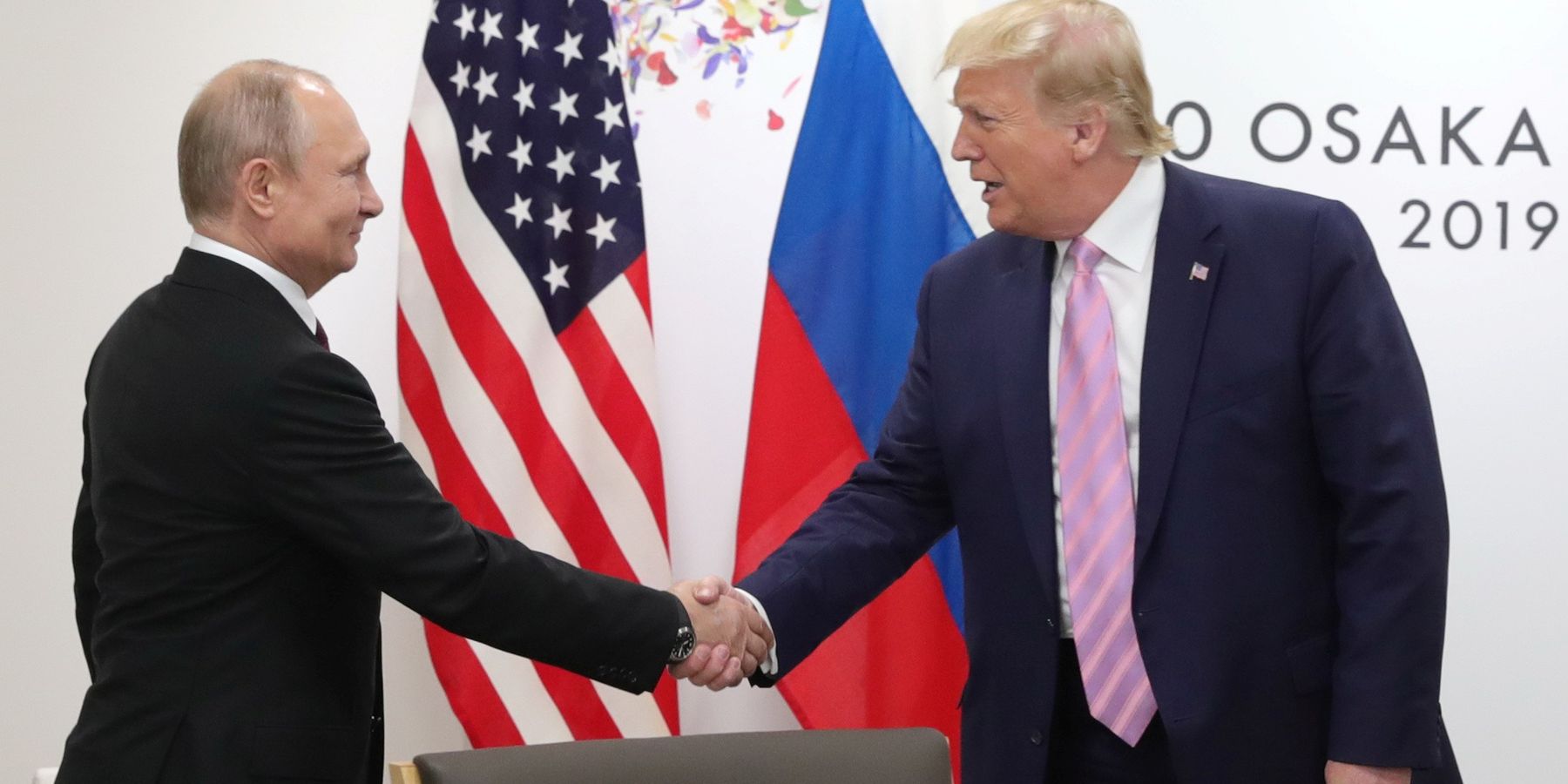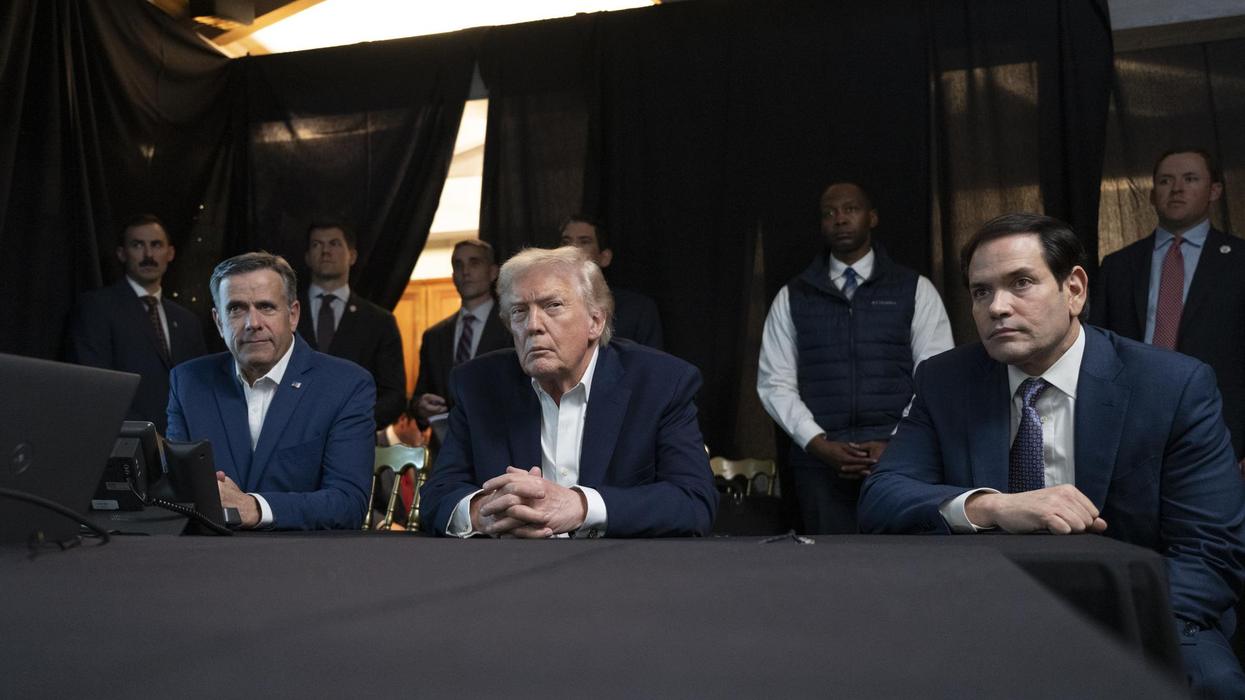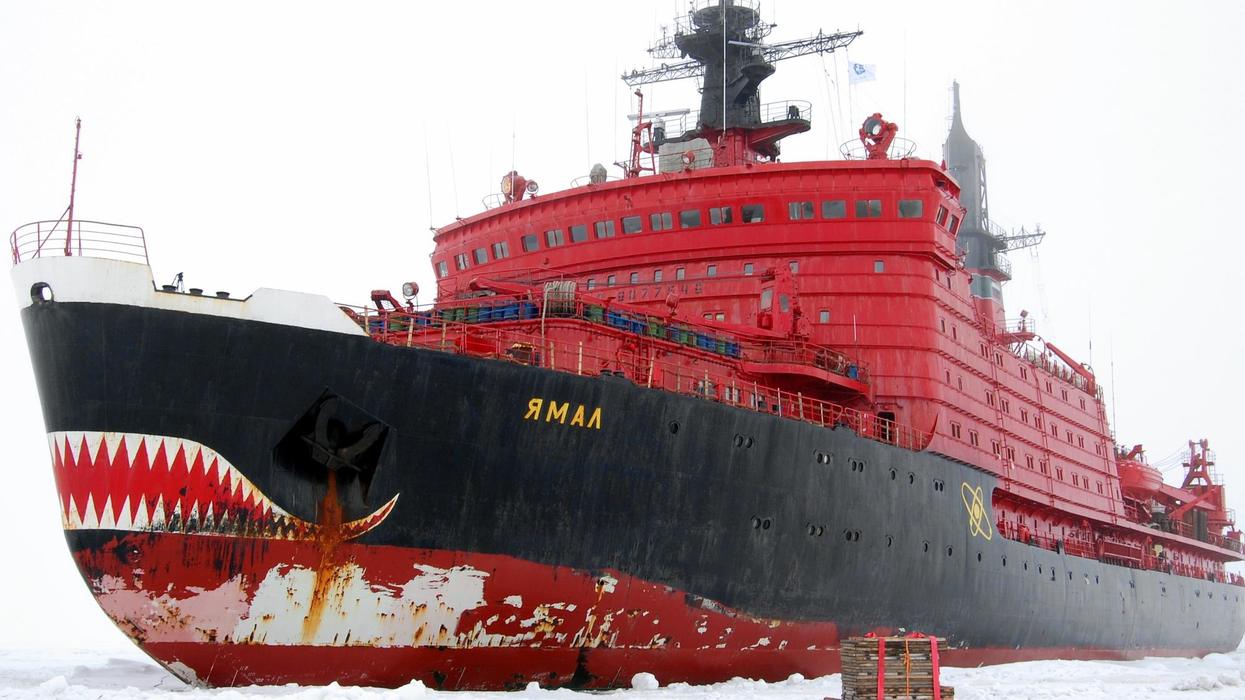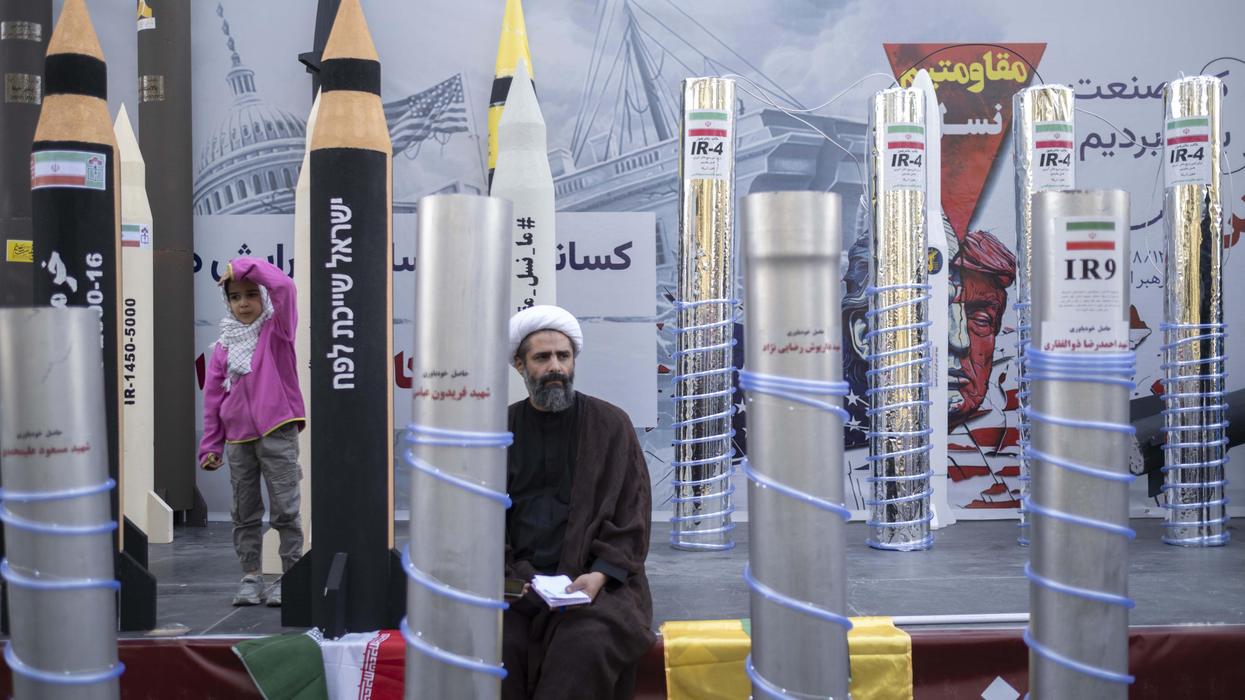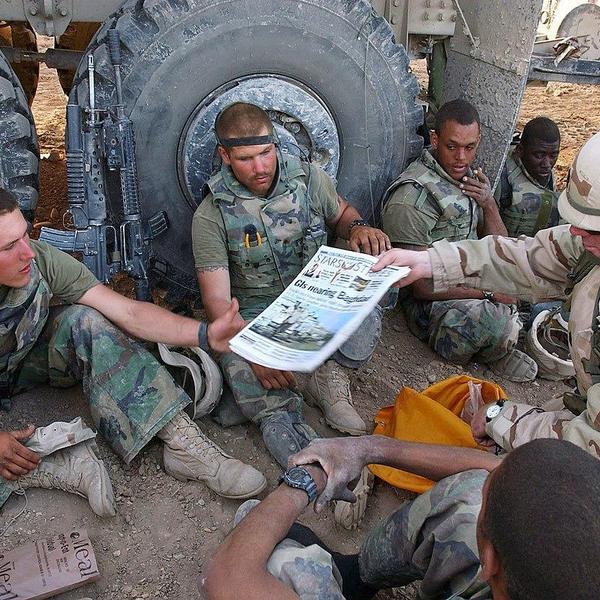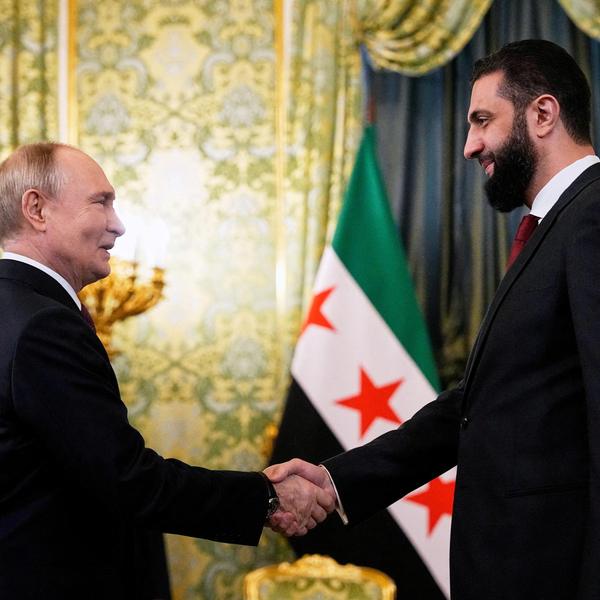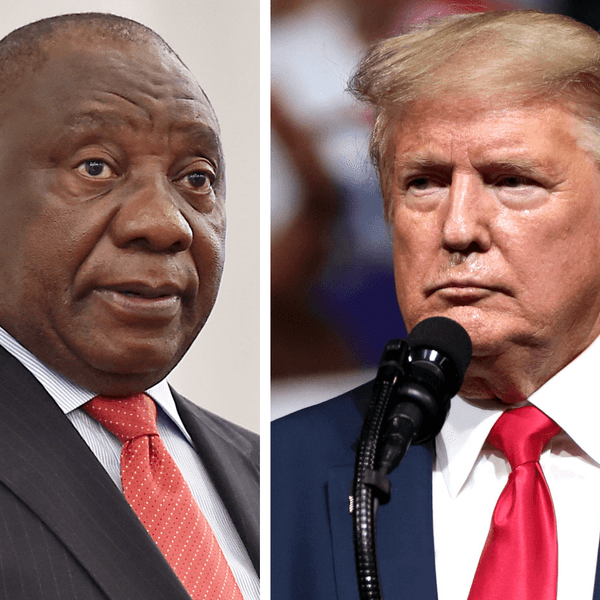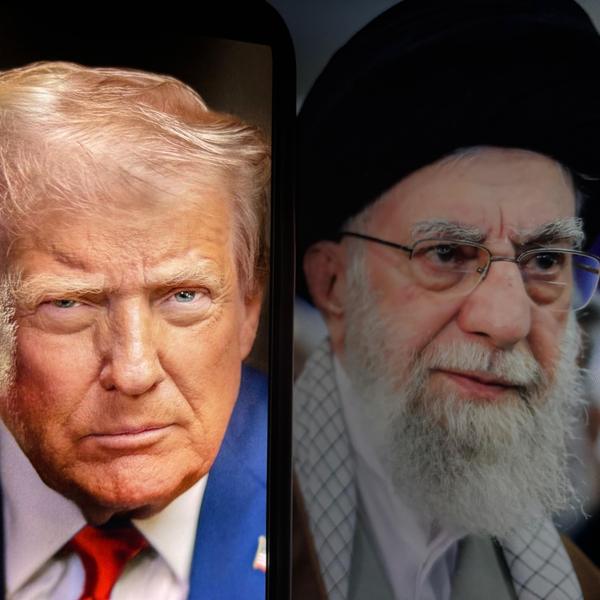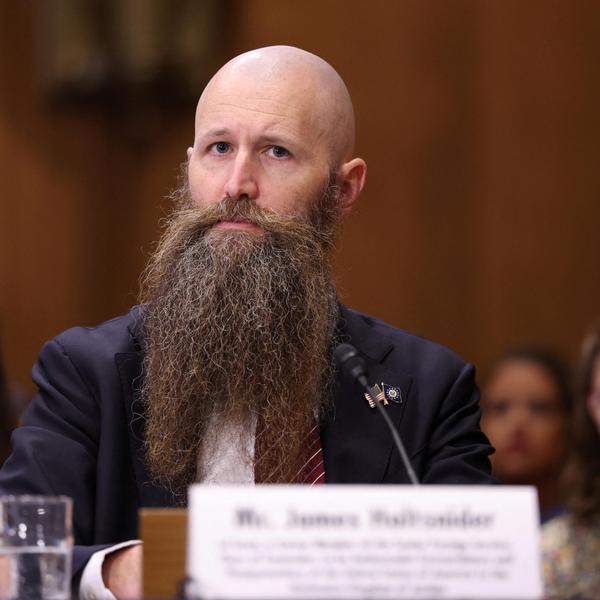“For every action there’s an equal and opposite reaction,” said President Vladimir Putin on the stage of his yearly economic Forum in Saint Petersburg, Russia in 2017.
I sat among the vast, mostly Russian, audience, and dwelled on Newton’s third law.
During four and a half years at the British Embassy in Moscow, I’d learned one important lesson: Russia always responds in kind, both to aggression and to engagement. President-elect Trump should think how he might trade with Putin on this basis.
Reciprocity is the most predictable tenet of Russian statecraft and Russia’s policy towards Ukraine offers the perfect illustration.
Action: on February 22, 2014, Ukraine’s pro-Russian President Viktor Yanukovych was deposed, in what Russia describes as an illegal coup d’etat, supported by the U.S. and UK governments.
Reaction: eight years and two days later, Ukraine’s pro-Western president, Volodymyr Zelensky, came within a whisker of being ousted by Russian troops.
With its tanks rolling into Ukraine from the north, east and south, Russia launched a massive airborne assault on Hostomel Airport. If they had secured the runway, Russian forces would have poured in to overwhelm Kyiv’s defences. However, a quick and clinical coup eluded Putin.
Yet, three years after the Ukraine war started, Russia has still achieved many of its objectives, albeit at a greater cost. Volodymyr Zelensky may be approaching the twilight years of his presidency; a future ceasefire would trigger calls to lift martial law and hold presidential elections. By that time, Russia will still occupy 20 percent of Ukrainian land. Ukraine’s future membership of the EU is on the very distant horizon and NATO membership is now buried deep in the pending tray.
Putin likely believes the West failed in its attempt to land a decisive strategic defeat on Russia. There are three reasons why he has maneuvered himself into a strong position to negotiate with Trump.
First, clarity.
Putin’s simple, unerring and oft expressed goal is to deny Ukraine’s aspiration to NATO. He may also hope for a longer term renewal of relations with Ukraine as post-war resentment towards the West grows in that country.
Western strategy has been complex, unclear and consistently erring. Western powers never acknowledged the legitimacy of Putin’s consistently expressed claim that NATO enlargement represented a core strategic threat to Russia’s national interest. An open door to possible Ukrainian membership of NATO, if the conditions were right and if every member could agree, was always a fudge that pleased no one. Zelensky was kept out of the tent while Putin fumed that the tent flap was open.
Second, decisiveness.
Russia has demonstrated the ability to act decisively which the collective West cannot do.
Put another way, in the great game of chess, Putin played fractious teams of 32 players in NATO and 27 players in the EU whose every move emerged out of prolonged debate and lowest common denominator ideas. It took almost a year for the UK to agree to send Challenger 2 tanks to Ukraine and 15 months for U.S. approval of F-16 aircraft.
That chess game becomes three dimensional when domestic politics get involved. In the teeth of Republican resistance, the U.S. Congress took months to agree a $61 billion package of assistance in April 2024. Germany halved military aid to Ukraine in August 2024, against a rise in popularity among antiwar political parties on the left and right. Foreign policy is always, ultimately, driven by domestic considerations.
Third, political will.
Putin has always shown the political will and had the domestic support to press his strategy, in the way that the West cannot. His calculations were rooted in a single assumption, which proved correct, that the West would not fight Russia head on to protect Ukraine.
He probably knew that the fear of escalation with the world’s largest nuclear power would prevent NATO members from agreeing to a direct military confrontation. When the fighting started in 2022, NATO offered every form of assistance except that more direct help.
Since then, a groundswell in populism has swept Donald Trump to power in the U.S. and undermined liberal coalitions in Germany and France. Alternative voices of the left and right call for engagement with Russia, squeezing the room for the hawkish policy that in the space of a decade has led us to war.
How did we get from the ouster of Yanukovych in 2014 to the attempted removal of Zelensky in 2022, and the devastating war that unfolded?
There’s little evidence that Putin had conquest in his mind all along, rather than reacting to events as they unfolded. There is no evidence that he is driven by a master plan, that includes a suicidal bid to invade the Baltics or Poland.
Putin’s grievances grew steadily in intensity across the eight years before war broke out as efforts to secure a peaceful settlement of the Ukraine conflict through the Minsk agreement failed. Indeed, it was one of the final acts of Zelensky’s pre-war government to declare the Minsk agreement officially dead. Yet, an unprecedented campaign of economic warfare against Russia through sanctions, led by the U.S. and supported by Britain, continued.
The big question remains, how much influence will Donald Trump have in bringing the war to a close? Trump can bring greater clarity to U.S. and Western aims with Russia and Ukraine that moves on from Biden’s disastrous incrementalism. He should be bold and decisive in exploring new ideas as the strength of his mandate provides him with the political bandwidth in which to act.
But right now, Putin remains in a strong bargaining position as his army is still gaining ground every day; even though Russia’s economy may be overheating under the war effort, he’s in no hurry to cut a deal.
Which brings us back to reciprocity. In the art of the deal, Trump should prepare to make concessions if he expects Putin to reciprocate. Finally taking NATO out of the equation and a thought-through plan to leverage sanctions relief in a future peace process, would be good places to start.
- Ukraine War well beyond Trump-Harris election ›
- Trump tells CNN town hall: 'I want everyone to stop dying' in Ukraine ›
- Ukraine’s best hope for peace looks a lot like Donald Trump | Responsible Statecraft ›
- Diplomacy Watch: Euro leaders reeling after Trump-Putin call | Responsible Statecraft ›
- Rubio: Trump ready to walk away from Ukraine peace talks | Responsible Statecraft ›
- Ukraine and Europe can't afford to refuse Trump's peace plan | Responsible Statecraft ›
- Why Trump's Ukraine negotiation efforts fail | Responsible Statecraft ›

